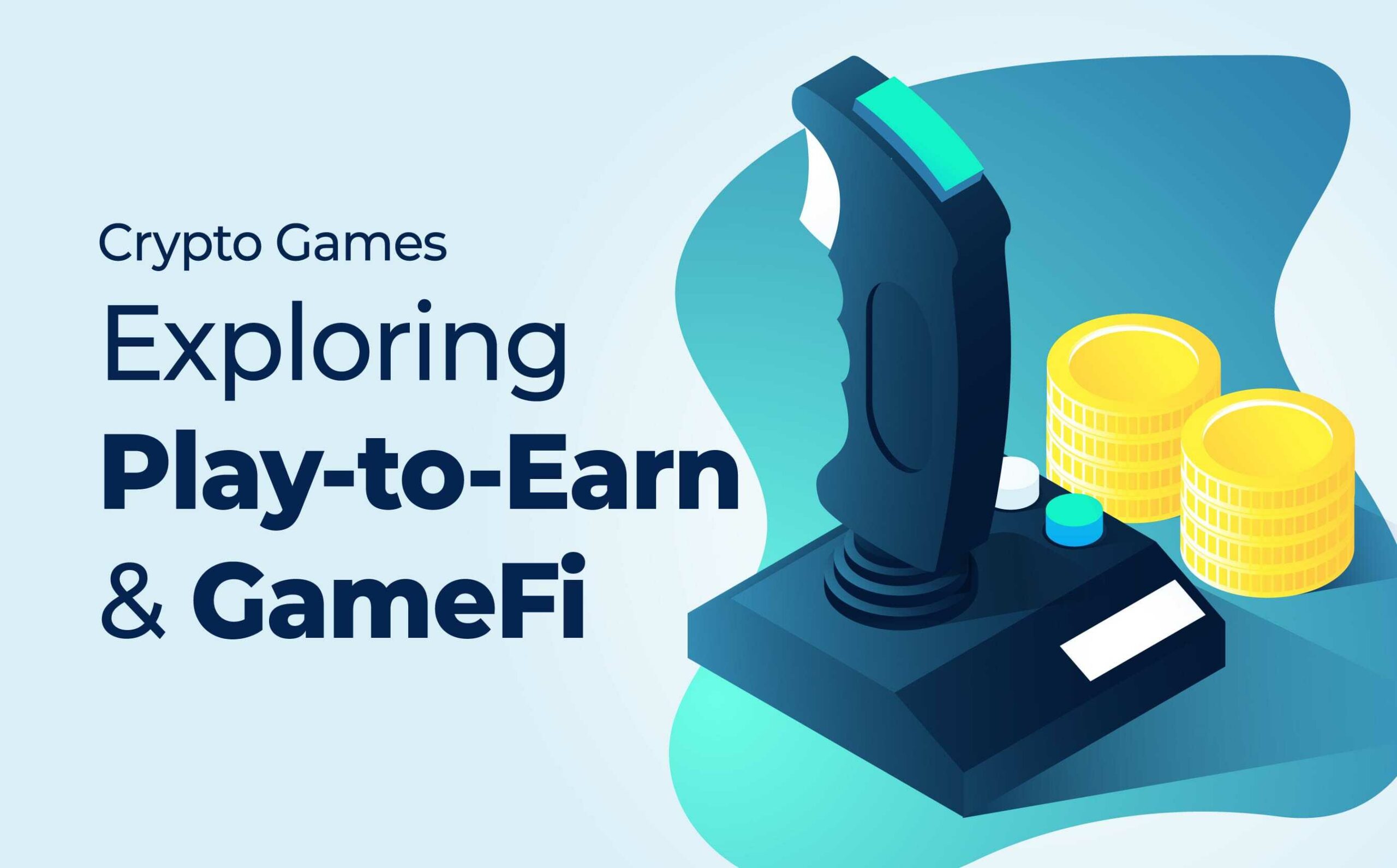
In this article, we will take a deep dive into the world of blockchain games. We will explore the different types of games available and discuss the technology that is disrupting the traditional gaming industry. We will also take a look at some games that incorporate elements of decentralized finance (DeFi).
Contents
What are Crypto Games?
Crypto games are video games that incorporate aspects of blockchain technology and cryptocurrencies. While not every part of these games relies on the blockchain, it plays an essential role in developing in-game economies using cryptocurrencies, non-fungible tokens (NFTs), in-game assets, and elements of DeFi.
One unique feature of crypto games is that players can physically own in-game assets as NFTs on the blockchain. This provides verifiable, transparent, and immutable records of ownership that cannot be altered. Additionally, many crypto and blockchain games use a play-to-earn (P2E) model, which rewards players with financial incentives for their time and skill. These games often have a native token that rewards players for completing challenges, quests, and battles.
Decentralized marketplaces are another common feature in play-to-earn crypto games. Here, players can buy and sell in-game items and upgrade their gear as they progress through the game. Many play-to-earn crypto games also offer virtual crypto mining and staking features, incorporating elements of DeFi. This creates a sense of ownership and involvement for players that is often absent in traditional video games.
GameFi: Merging Gaming and DeFi
GameFi refers to the merging of video games and decentralized finance (DeFi). Blockchain-based gaming platforms enable players to have verifiable ownership of various aspects of their gaming experiences. While most traditional gaming platforms use a “play-to-win” model, many blockchain games adopt a “play-to-earn” model that rewards players for their skill and time using various cryptocurrencies.
Non-Fungible Tokens (NFTs)
Non-fungible tokens (NFTs) represent unique digital asset ownership on the blockchain. These tokens can represent almost any asset, including art, real estate, fashion, music, fan experiences, and digital collectibles. In crypto games, tokenizing in-game items on the blockchain provides verifiable ownership that is publicly viewable and has a traceable digital history.
Play-to-Earn Crypto Games
Many blockchain games adopt the play-to-earn (P2E) model, which allows players to monetize their gaming skills and playing time. P2E crypto games use cryptocurrencies to reward players for their participation. These games often have their own native utility token, which can be used for staking, purchasing in-game assets, or NFTs. Token holders may also have governance rights to vote on proposals that affect the game’s parameters. Additionally, players can trade these tokens into fiat or other cryptocurrencies. NFT assets can also be sold on secondary markets.
Top Blockchain Games
Let’s take a look at some of the top games in the blockchain space based on active users:
- Splinterlands: A blockchain-based digital collectible card game where players can collect and trade in-game assets transparently and immutably.
- Alien Worlds: A DeFi and NFT metaverse game where players compete, trade, and strategize about interplanetary politics.
- Axie Infinity: An NFT-based collectibles breeding game where players can breed creatures called “Axies” and take them to battle.
- Farmers World: A play-to-earn NFT gaming platform where players can create farms and participate in the Farmers World economy.
- Upland: A blockchain-based virtual property trading game where players can build cities and collect property.
- DeFi Kingdoms: A crypto game that combines fantasy pixel art with utility-driven rare NFTs, featuring battles and a decentralized exchange.
The Best Blockchain Games for Beginners
If you’re new to the world of crypto gaming, there are blockchain-based versions of popular games that you may already be familiar with. There are also games inspired by leading titles in the traditional gaming world. It’s important to learn the basics of crypto before diving into crypto gaming, and platforms like Moralis Academy offer courses to help beginners get started.
Conclusion
Crypto games are disrupting the traditional gaming industry by offering provably fair gaming scenarios and financial incentives through play-to-earn models. These games appeal to both traditional gamers and crypto enthusiasts alike, combining elements of DeFi, NFTs, and augmented reality (AR) to create a compelling alternative to mainstream gaming platforms. With a wide range of games available, there’s something for everyone in the world of crypto gaming.
FAQs
Q: What are crypto games?
A: Crypto games are video games that incorporate aspects of blockchain technology and cryptocurrencies. They often use play-to-earn models and allow players to physically own in-game assets as NFTs on the blockchain.
Q: What is GameFi?
A: GameFi refers to the merging of video games and decentralized finance (DeFi). It enables players to have verifiable ownership of various aspects of their gaming experiences and offers financial incentives for participating in games.
Q: What are NFTs?
A: Non-fungible tokens (NFTs) represent unique digital asset ownership on the blockchain. They can be used to tokenized in-game items, providing verifiable ownership and traceable digital history.
Q: What are some top blockchain games?
A: Some of the top blockchain games include Splinterlands, Alien Worlds, Axie Infinity, Farmers World, Upland, and DeFi Kingdoms.
Q: Are there blockchain games for beginners?
A: Yes, there are blockchain-based versions of popular games that cater to beginners. It’s recommended to learn the basics of crypto before diving into crypto gaming.
Q: How are crypto games disrupting the gaming industry?
A: Crypto games are disrupting the gaming industry by offering provably fair gaming scenarios, financial incentives, and decentralized ownership of in-game assets. They provide a compelling alternative to traditional gaming platforms.







